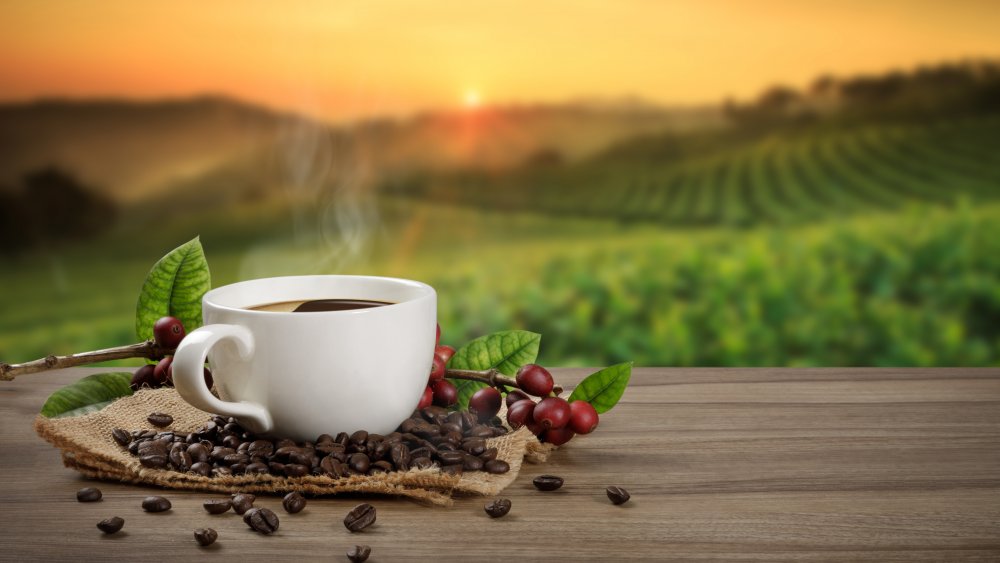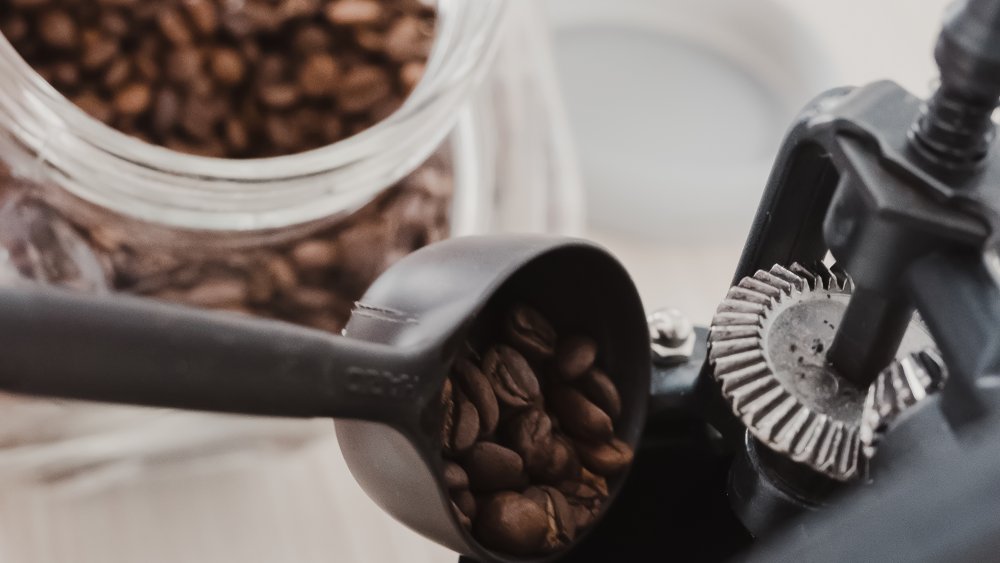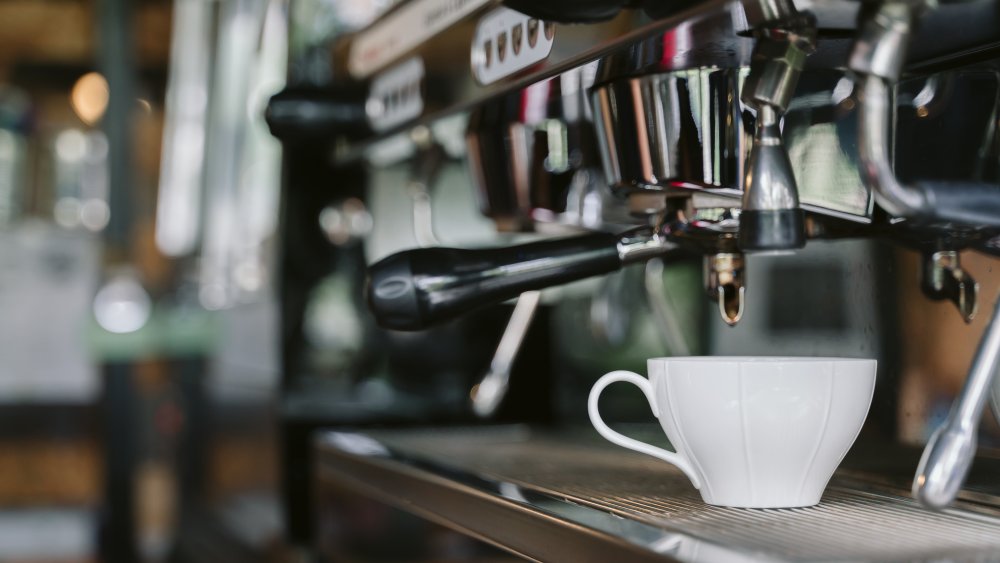You've Been Making Coffee Wrong Your Whole Life
When it comes to making perfect coffee drinks, particularly ones based on espresso, many coffee connoisseurs and baristas claim it's more of an art than a science, and that they are magically guided to use the exact perfect proportion of beans every single time by some type of coffee spirit (no, we're not talking about Kahlua, although it may provide inspiration in its own way). One thing that most people, coffee pros and amateurs alike, have believed for decades, though, is that using a lot of finely ground beans will result in a nice, strong cup of coffee.
Well, what do you know, it seems science has proven us wrong once again. According to the latest research, the way to a perfect cup lies in using fewer beans and grinding them more coarsely. What the what?? How could this be? We'll let science do the explaining.
Science tells us how to make the best cup of coffee
An academic journal called Matter just published a hot-off-the-presses page-turner called "Systematically Improving Espresso: Insights from Mathematical Modeling and Experiment." Should you not have time to peruse all 27 pages, the executive summary is as follows: Scientists from the U.S., UK, Australia, and Switzerland did a whole lot of experimenting to find a way to brew a tasty, yet consistent, shot of espresso. Their findings? As study co-author Christopher Hendon, a computational chemist at the University of Oregon, told Today, "[E]xperiments and modeling suggest that efficient, reproducible shots can be accessed by simply using less coffee and grinding it more coarsely."
As to why this works, it turns out that finely-ground coffee beans are more likely to clog the coffee maker's basket, and, as a result, less coffee is extracted from the grounds than is the case with a coarser grind using fewer beans. Hendon suggests using just one tablespoon of coarsely-ground beans to brew a single shot of espresso, which is half the amount used by Starbucks. He says this proportion will result in "a shot that runs really fast but tastes great."
How this coffee hack could be a game changer
If everyone starts using half as much coffee, this could cut down costs significantly, not only for home coffee consumers but also for coffee chains. Workers at Chicago's Wormhole Café were early adopters of the new brewing method, having learned the technique from a former manager who'd heard Hendon speak on it long before the study was published. They did some experimenting and taste-testing of their own, and were so pleased with the results that they adopted the method for all espresso drinks brewed at the cafe.
Not all baristas are quite so pleased with anything purporting to de-mystify their sacred coffee bean communion. Adam Budnick, a barista at Nashville's Kettner Coffee Supply, used some sciencey-sounding jargon of his own to throw shade at any technique meant to guarantee the perfect cup, explaining, "The best extraction practices are extremely dependent on the origin of the coffee bean...includ[ing] the presence of lactic acid based on elevation, fermentation of the coffee bean husk or cherry and how the washing process affects the available sugars."
Well, okay, that re-mystifies things to a significant degree again. So maybe, without a degree in chemistry and another one in — uh, coffeeology? — you will never be able to achieve that elusive perfect cup on your own, but if you want something pretty darn good, and easily reproduced, you might as well try the Hendon hack and see how you like the results.


